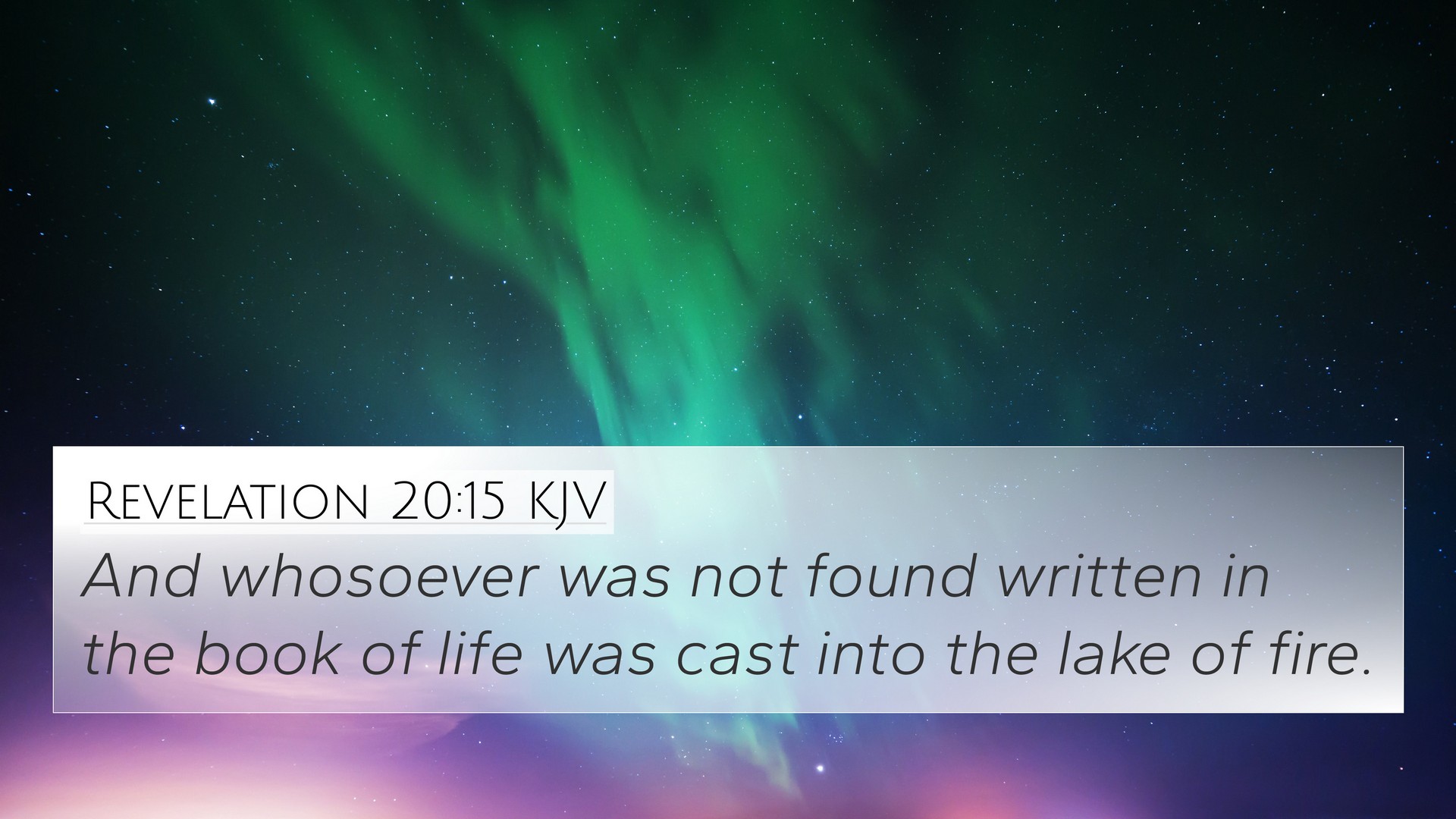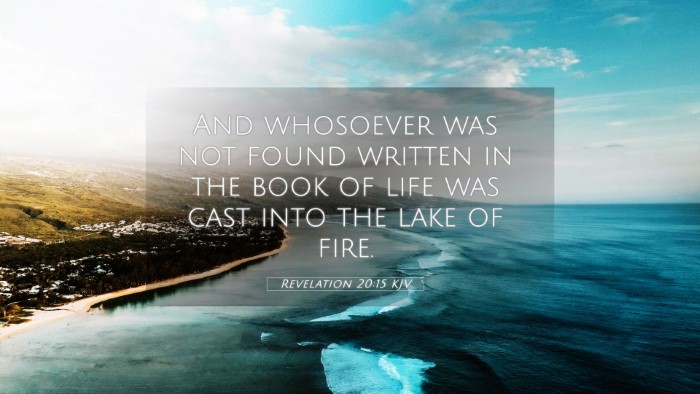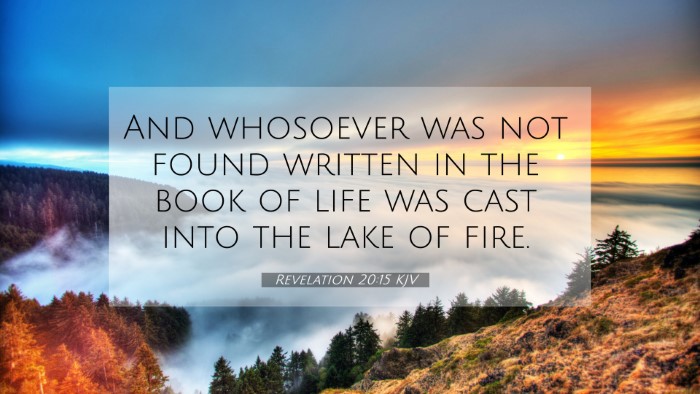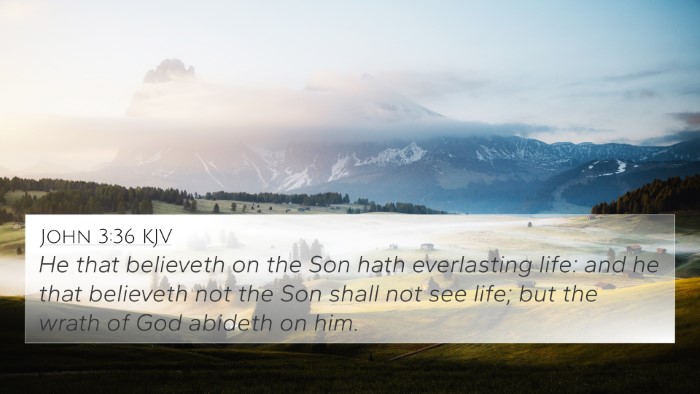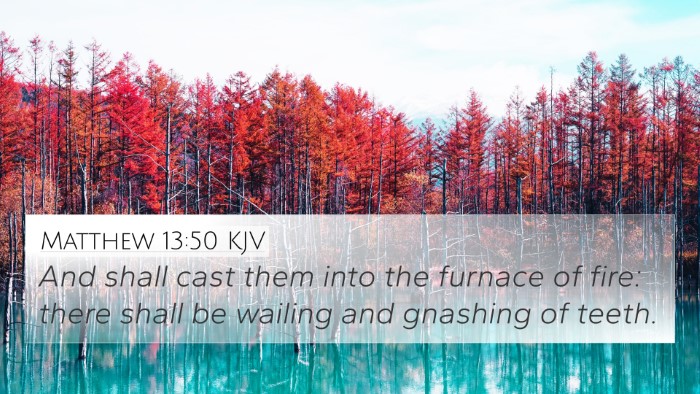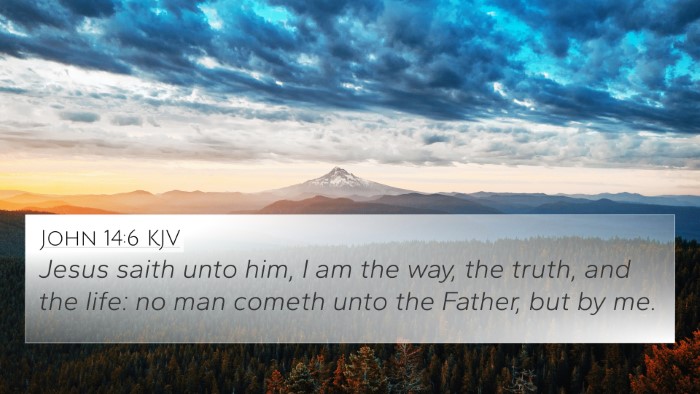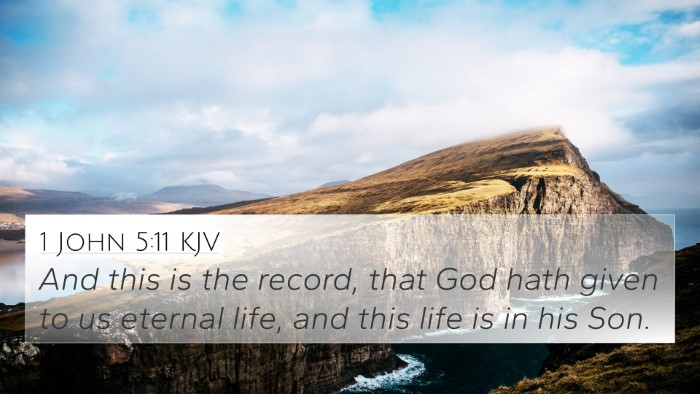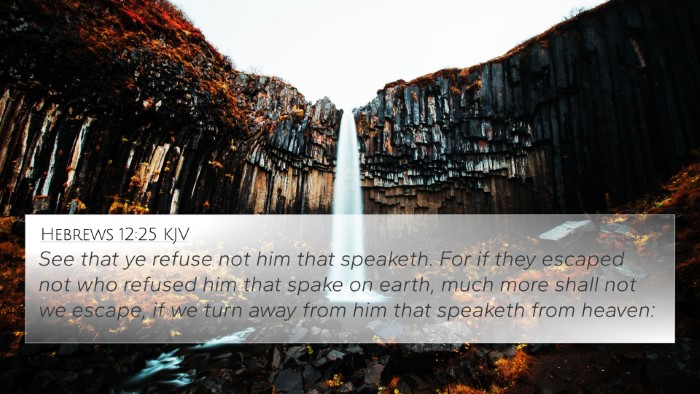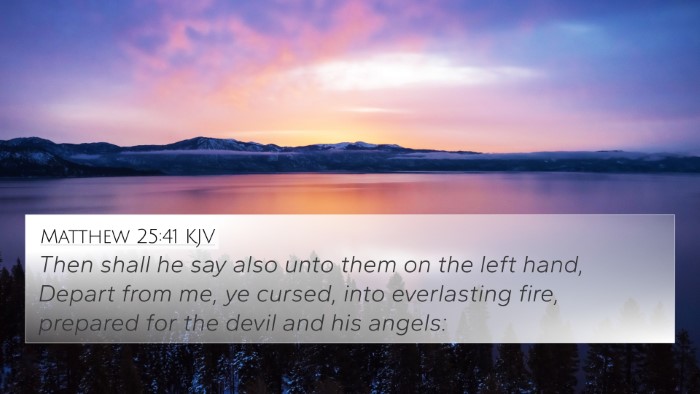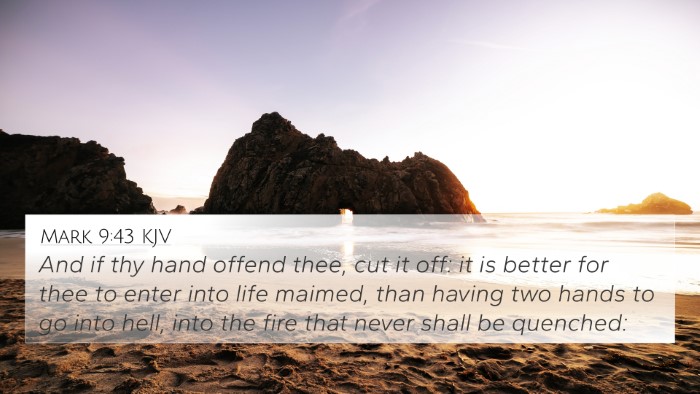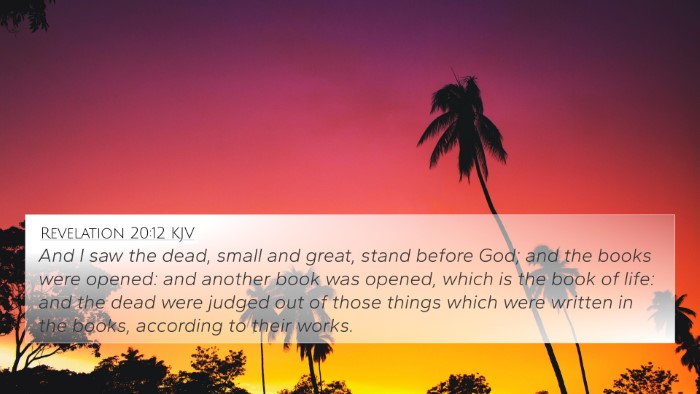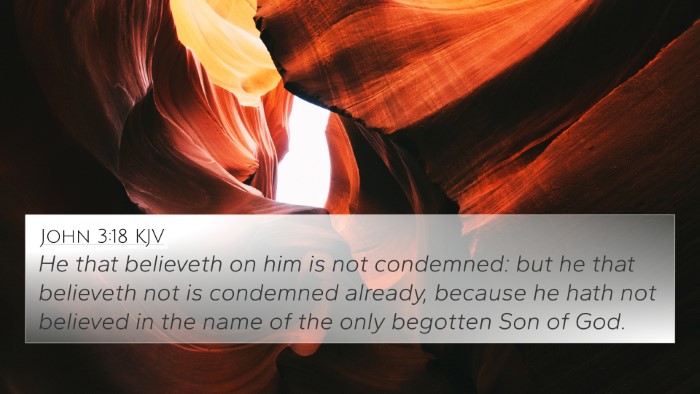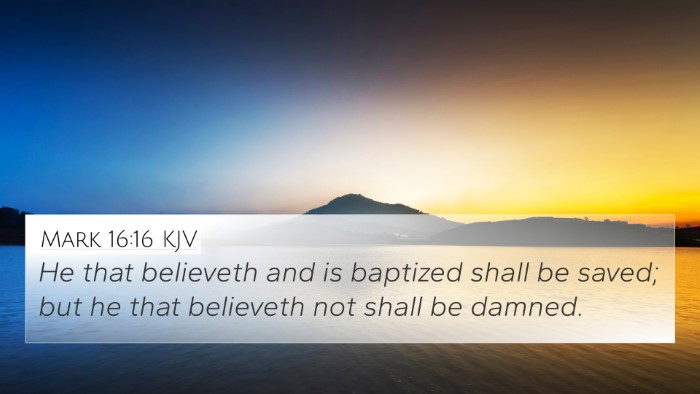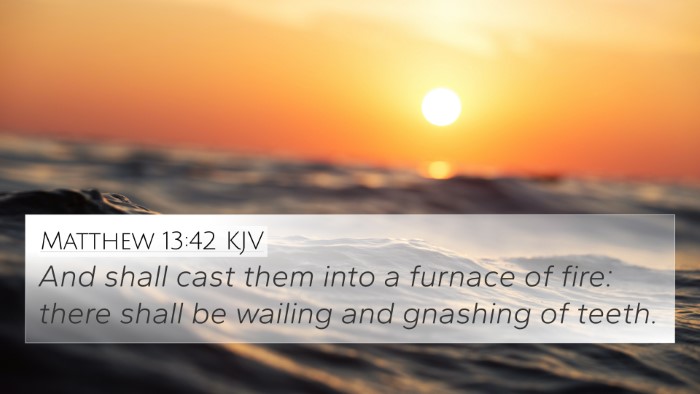Understanding Revelation 20:15
Verse: Revelation 20:15 - "And anyone not found written in the Book of Life was cast into the lake of fire."
Revelation 20:15 addresses the ultimate fate of those whose names are not in the Book of Life. This verse serves as a poignant revelation of final judgment, representing the eternal consequences of one's relationship with God. The imagery of the lake of fire represents complete separation from God's presence, indicating the seriousness of living without faith in Christ.
Commentary Insights
This section synthesizes insights from various public domain commentaries, offering a cohesive understanding of the verse:
-
Matthew Henry:
Henry emphasizes the finality of judgment depicted in this verse. He states that the "Book of Life" symbolizes God's record of those who have received salvation through faith in Jesus Christ. Those not found in this book face a dreadful fate, underscoring the urgency of accepting Christ for eternal life.
-
Albert Barnes:
Barnes elaborates on the nature of the "lake of fire," suggesting it represents both a literal and spiritual state of separation from God's grace. He points out that being cast into this lake signifies the ultimate justice of God, where unrepentant sinners meet their eternal destiny devoid of hope.
-
Adam Clarke:
Clarke provides a theological perspective, noting that the judgment illustrated in this verse serves as a sober reminder of the consequences of sin. He asserts that the “Book of Life” is a significant theme throughout Scripture, connecting to the notion of divine election and the redemptive work of Christ.
Thematic Connections
This verse resonates with various biblical themes, underscoring the interconnection between judgment, salvation, and the eternal state:
- Judgment: Revelation 20:12-13 highlights the gathering of all people for judgment, reinforcing the concept that every individual will answer for their deeds.
- Salvation: John 3:16 illustrates God's desire for all to be saved, contrasting with the eternal separation depicted in Revelation 20:15.
- Book of Life: Philippians 4:3 mentions the Book of Life, showing how names are inscribed, which ties believers to eternal life.
- Lake of Fire: Matthew 25:41 refers to the "eternal fire prepared for the devil and his angels," reinforcing the seriousness of judgment.
- Finality of Decision: Hebrews 9:27 reminds that it is appointed for man to die once, further emphasizing the urgency of one’s choices in life.
- Hope for the Believer: 1 John 5:13 assures believers of the security of their eternal fate, as their names are in the Book of Life.
- Separation from God: 2 Thessalonians 1:9 describes eternal destruction away from the presence of the Lord, reflecting the horror of being cast away.
Bible Cross-References
In studying Revelation 20:15, several cross-references enhance understanding:
- Revelation 3:5: "The one who conquers will be clothed the same way, dressed in white. I will never erase his name from the book of life but will acknowledge his name before my Father and before his angels."
- Daniel 12:1: "At that time, Michael, the great prince who stands guard over your people, will arise. There will be a time of distress such as has not happened from the beginning of nations until then. But at that time your people—everyone whose name is found written in the book—will be delivered."
- Luke 10:20: "Nevertheless, do not rejoice in this, that the spirits are subject to you, but rejoice that your names are written in heaven."
- Matthew 7:23: "And then will I declare to them, ‘I never knew you; depart from me, you workers of lawlessness.’"
- Revelation 21:27: "But nothing unclean will ever enter it, nor anyone who does what is detestable or false, but only those who are written in the Lamb's book of life."
- Philippians 4:3: "Yes, I ask you also, true companion, help these women, who have labored side by side with me in the gospel together with Clement and the rest of my fellow workers, whose names are in the book of life."
- Romans 6:23: "For the wages of sin is death, but the free gift of God is eternal life in Christ Jesus our Lord."
Conclusion
In summary, Revelation 20:15 serves as a critical reminder of the eternal consequence of one's spiritual state. The combined insights from various commentaries clarify its message: our names must be written in the Book of Life, achieved through faith in Jesus Christ, to escape the terrifying fate described in the verse. Understanding this verse and its context can drive believers towards a deeper faith and a call to share the Gospel with others.
Utilizing tools for Bible cross-referencing can lead to deeper insights into connecting themes in Scripture. Finding cross-references in the Bible is essential for comprehensive Bible study, revealing intricate links between the Old and New Testaments and enhancing the spiritual understanding of critical verses like Revelation 20:15.
